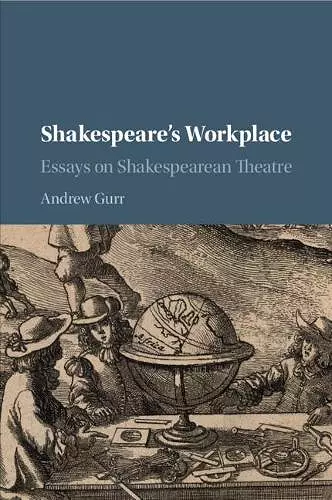Shakespeare's Workplace
Essays on Shakespearean Theatre
Format:Paperback
Publisher:Cambridge University Press
Published:23rd Jun '22
Currently unavailable, and unfortunately no date known when it will be back

Andrew Gurr's work offers the best access to the original Shakespearean theatre. This is a selection of his key essays.
Over the past thirty-five years Andrew Gurr's work has become the standard means of access to the original Shakespearean theatre and the staging of Shakespeare's plays. This is a selection of his key essays about the conditions under which Shakespeare and his contemporaries composed their playbooks.Shakespeare was easily the most inventive writer using the English language. His plays give us intricacies of vocabulary and usage that have enriched us immeasurably. This book provides a series of analytical essays on the marginalia relating to the plays. Each of them is a searching and authoritative account, packed with details, of some of the more peculiar conditions under which Shakespeare and his peers composed their playbooks. Among the essays are two completely new contributions. Altogether they reveal fresh details about the input of the playing companies, playhouses, individual players and even their controller, the Revels Office, to the complex fragments that we now have of the Shakespearean world. Gurr examines Shakespeare's own choice between playwriting and poetry, the requirements of working in a playhouse that wraps itself around the stage, and its impact on the creation of such figures as Henry V, Shylock, Isabella, King Lear and Coriolanus.
'Andrew Gurr has spent his career illuminating what he calls the 'dark penumbra' around every early modern play … Gurr's approach, which has influenced so much of the field, moves from specific pragmatic or historical questions ('were there three doors for players to enter the stage, or only two? What might the first players have done to cope with the Globe's two large structural pillars on the stage?') to the much broader 'whether the ear or the eye had priority in early modern theatre?' Elizabeth Scott-Baumann, The Times Literary Supplement
ISBN: 9781316618271
Dimensions: 228mm x 151mm x 16mm
Weight: 443g
294 pages